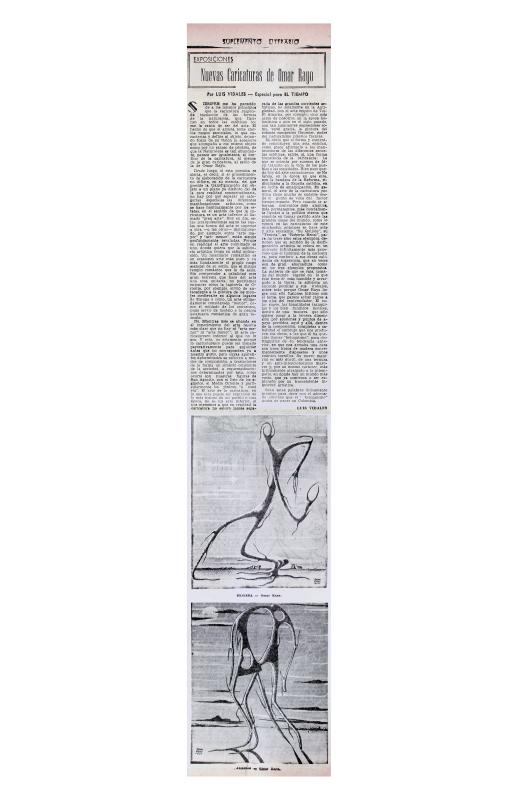Ricardo Rendón (1894–1931) was a Colombian caricaturist whose witty view of politics earned him a place of honor in the history of art and journalism in Colombia in the 1920s. In this article, Luis Vidales (1900–1990) relates Rendón’s flair for critiquing his social environment to the historical transcendence of his caricatures, and reviews his work in terms of its sociological value. It is interesting to note the critic’s definition of caricature as an expression of the spirit of the people, given that there was a debate in progress at the time on the artistic status of caricature and in particular its place in the aesthetic hierarchy [see “Nuevas caricaturas de Omar Rayo” [New Caricatures by Omar Rayo], doc. no. 1089504]. Many, in fact, classified this form of expression as a “minor” art form. Vidales disagrees, seeing Rendón’s work as privileged products of the great art of that period.
On the other hand, the reader should note the critical complexity of the article, which although presented as a biographical sketch, builds a theoretical argument on the transcendence of Rendón’s drawing and its relationship to the social realities it represents. This confirms the theoretical tendencies of contemporary critics and the existence of a conceptual framework through which to judge the works and the artists of the past. The style of the article is also of interest. In keeping with the complimentary spirit and the desire to honor the memory of the deceased artist, Vidales enjoys using stylistic turns of phrase and elegant formulations, an unmistakable sign of the existence of critics with relevant discursive concerns.

